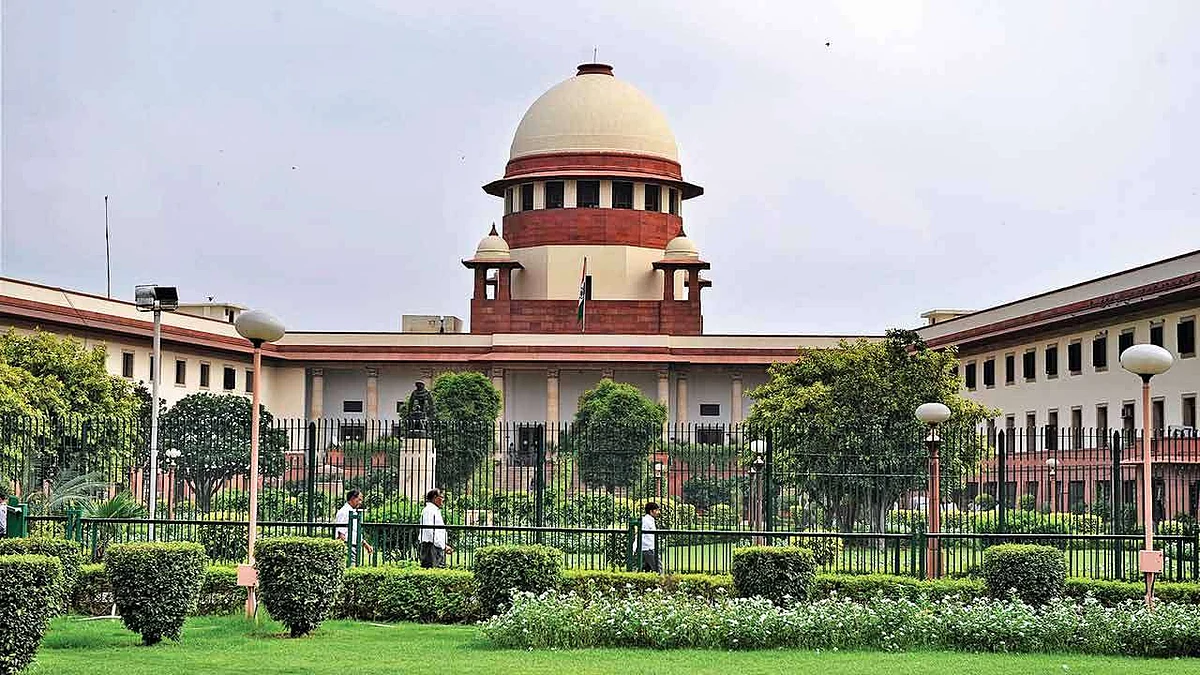Plea in Supreme Court against Assam Repealing Act converting state-funded madrassas to govt schools
A plea has been moved in the SC challenging a Gauhati HC order, which upheld the Assam Repealing Act of 2020 that turned existing provincialised madrassas in the state to regular government schools

A plea has been moved in the Supreme Court challenging a Gauhati High Court order, which upheld the Assam Repealing Act of 2020 that turned existing provincialised madrassas in the state to regular government schools.
The appeal has been filed by 13 petitioners, who are residents of Assam. The plea, filed through advocate Adeel Ahmed, said: "The high court has erroneously observed that the petitioner madrassas being government schools, and wholly maintained by the State through provincialisation are hit by Article 28(1) of the Constitution of India and as such, cannot be permitted to impart religious instruction."
The Assam Repealing Act, 2020 repealed Assam Madrassa Education (Provincialisation) Act, 1995 and the Assam Madrassa Education (Provincialisation of Services of Teachers and Reorganisation of Educational Institutions) Act, 2018. The Governor of Assam granted his assent on January 27, 2021.
The plea contended that the operation of the high court judgment, which was delivered on February 4, 2022, would result in the discontinuation of the petitioner madrassas as madrassas and would prevent them from admitting students for the old courses for this academic year.
The plea contended that the Act takes away property coupled with statutory recognition of madrassa education and the impugned order dated February 2, 2021 issued by the Governor disbands the 'Assam State Madrasa Board' created in 1954. "It amounts to an arbitrary exercise of both legislative and executive powers and amounts to a denial of the petitioner madrassas' ability to continue as madrassas providing religious instruction coupled with religious education," added the plea.
The plea argued that madrassas are minority educational institutions created by a religious minority for the purposes of imparting religious instruction as well as other categories of education to the people of India, within Assam.
"They satisfy both requirements for claiming the benefit of Article 30(1), i.e, firstly, they are an educational institution, and secondly, they have been created by a religious minority. Therefore, it is their right under Article 30(1) to 'establish' and 'administer' educational institutions of their choice which would guarantee the petitioner madrassas the right to decide their own curriculum which may also be based on their perception of ways to preserve their religion or culture," said the plea.
The plea contended that Assam Madrassa Education (Provincialisation) Act, 1995 (repealed by the Act of 2020) is only limited to the state undertaking to pay the salaries and provide consequential benefits to the teaching and non-teaching staff employed in madrassas as also the administration, management and control of these madrassa.
"The land and buildings belong to the madrassas are taken care of by the petitioners and the expenditures on electricity and furniture are borne by the petitioner madrassas themselves," it added.
Follow us on: Facebook, Twitter, Google News, Instagram
Join our official telegram channel (@nationalherald) and stay updated with the latest headlines
